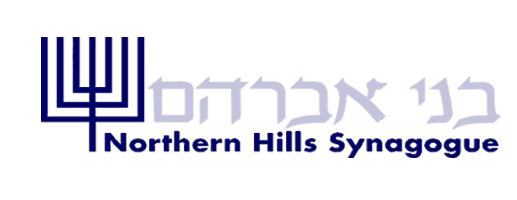A couple of years ago, I taught comparative religion at Mercaz (the Conservative High School). One evening, we had a Muslim guest speaker, and, demonstrating how he says his prayers, he took out his phone, which had an app which pointed to Mecca. I thought that that was pretty cool, and I wondered if there is an app which points to Jerusalem. When I got a new phone recently, I got just such an app; it is called Tefilla Compass. However, using the app has led to some disconcerting results. I had always assumed that, in order to face Jerusalem, we should face east, or a little south of east, since Cincinnati is 39 deg N latitude, and Jerusalem is 31.8 deg N. However, my Tefilla Compass pointed northeast! That, of course, gives the great circle route to Jerusalem, which is really the shortest route over the earth’s surface. Among other things, it means that, when I dovven at home, I no longer face the beautiful Mizrah by Julie Pentelnik which is on one of my eastern walls; I stand at an angle to it.
Thinking about these issues of geographical orientation has made me think of the broader issue of the real orientation, the real focal point, of Jewish life. There is a strong presumption that we are oriented toward Jerusalem, toward Eretz Yisrael. We are supposed to face Jerusalem when we pray (and that direction goes all the way back to the first collection of the oral teachings, the Mishnah). At the seder and at the end of Yom Kippur, we say, “L’shanah haba-ah biy’rushalayim,” and, in most of our synagogues, we display Israeli flags. However, this orientation towards Jerusalem – and I am taking the physical orientation as a symbol for a personal orientation – is not something which can be taken for granted. I see three rivals to Jerusalem as the focus of Jewish life.
The first rival is the United States. Although the exact provenance of the statement is unclear, the Reform movement once championed the slogan that “America is our Zion, and Washington is our Jerusalem.” Indeed, the prophet Jeremiah had said, over 2500 years ago:
“Thus says the Lord of hosts, the God of Israel, to all the exiles whom I have sent into exile from Jerusalem to Babylon: 5 Build houses and live in them; plant gardens and eat their produce. 6 Take wives and have sons and daughters; take wives for your sons, and give your daughters in marriage, that they may bear sons and daughters; multiply there, and do not decrease. 7 But seek the welfare of the city where I have sent you into exile, and pray to the Lord on its behalf, for in its welfare you will find your welfare.
Historically, Jews accommodated themselves to the places where they found themselves living, but, at the same time, they kept their focus on the Land of Israel. With the beginning of the Reform movement in the 19th century, that focus wavered. It was not only the Reform movement which sought to replace the focus on Eretz Yisrael with a focus on the country where one lived. In 1952, Golda Meir was a principal speaker at a dinner in Indianapolis to sell Israel Bonds, a dinner which was held over the opposition of the leaders of the local Jewish community. (In all fairness, the community leaders were not totally opposed to the sale of Bonds; they objected to the timing of the dinner.) However, some time in the late 1970s, a resolution was introduced to the Board of Northern Hills Synagogue, to the effect that the synagogue should buy Israeli wine for Kiddush. The resolution was defeated, in part, with the argument that we should buy American wine.
A second rival to Israel and Jerusalem as a focus of Jewish life is no place. The poet Heinrich Heine said that, for Jews, the Torah is a portable homeland. The idea is that the Jewish religious way of life, which can be practiced anywhere, is our spiritual center of gravity. This idea also has a long history. On a note similar to that struck by Jeremiah, the second prophet Isaiah taught that the exile of the Jews did not mean, as the conventional wisdom of the time had it, that the god of the Babylonians was greater than the God of the Hebrews, and that, now, in exile, the Jews should worship Babylonian gods. Rather, Isaiah said, God had only withdrawn His presence from the Jews for a moment; the prophet brought this message from God:
The heaven is My throne, and the earth is My footstool: Where could you build a house for Me, what place could serve as My abode?
The Mekhilta, the early Midrash on Exodus, asked why the Torah was given in the wilderness, and it answered that it was so that no country could lay claim to the Torah. We read in the Mekhilta also that, wherever the Jews go in exile, God’s presence is with them. People today who would like to disconnect Judaism from particular places speak of it as a “religion of universal values”.
The third rival to Eretz Yisrael as the center of attention is ourselves. For several decades in the 20th century, the emphasis in American Jewish life was on public issues: establishing and defending the State of Israel, opposing anti-Semitism, and promoting social justice and peace at home and abroad, not to mention building impressive synagogues and institutions across the country. That was a time when slogans such as “Judaism isn’t a religion; it’s way of life” and “You don’t have to believe anything to be Jewish” were widespread.
Organized American Judaism didn’t pay much attention to the inner life of individuals. I remember a Hillel event (in the mid 60s), at which someone wanted to talk about Martin Buber, Hasidism, and mysticism. I became indignant and asked how she dared worry about such things when farm workers were being exploited in California, and the United States was killing people in Vietnam. I started to see things differently a few years later. I was at the Park Avenue Synagogue in NY, an extremely fancy place, where the ushers wore black suits and homburgs. During the Torah service, someone asked for a Misheberakh for a sick relative, and, as the Misheberakh was being said, he burst into tears. I realized that even wealthy people have human problems.
The pendulum has certainly swung far since then. I have referred many times to the ground-breaking research of Steven Cohen and Arnold Eisen, recorded in their book The Jew Within. They found that American Jews wanted it their way. They wanted community, but on their own terms. They would not automatically affiliate with Jewish organizations in the way that their parents did. Here are two symbolic indicators of the shift. One is from Cohen and Eisen’s book. One of their research subjects, after having told her story, said, “I guess that my religion is Sheila-ism.” The other is something that I heard. Some people decided to have their seder, not on the customary date, but at another time when the whole family could get together. (I will say that having a family gathering in the spring is a good idea, but it is no substitute for having a seder, even a very small one, on the 15th and 16th of Nisan.)
Historically, there was a tension in Judaism between a focus on the individual and a focus on the community. On the one hand, most of our prayers are worded in the plural; we praise the Lord our God, who has made us holy with His commandments, etc. On the other hand, we read in the Talmud Tractate Sanhedrin that the Blessed holy One desires the heart.
When we think about it, there is something right about each of these orientations. Despite the excesses of individualism which we see in America today, we should affirm that the Torah must belong to each one of us. That is, each one of us must make the Torah his own, in her own way. The Midrash Shemot Rabbah picked up on an oddity in the wording of Ps. 29, “The voice of the Lord comes in strength,” to say that the Torah may be understood differently by each person.
While I mentioned the phrase “a religion of universal values,” I did so in a critical context. However, Judaism is, among other things, a religion of universal values. Our year-round Torah covers remind us of values such as “shalom,” “tzedek,” ”emet,” and “h?ayim”. If our Jewish lives do not embody those values, then what are they?
We owe great gratitude and loyalty to the United States. A responsive reading found in Conservative prayer books of several generations is “America: Founded on Biblical Precepts”. It alternates Biblical verse with quotations from American civic classics. Certainly, America has been good for the Jews, as good if not better than any other place in history.
When all is said and done, however, being Jewish is not believing some abstract set of principles; it is belonging to a people, which has its own unique religious culture. Peoples should have their own lands, and the Jewish people has the Land of Israel. Taking care of our own spiritual lives, living according to our values, being good citizens, we should still keep a compass which points – east, southeast, northeast – towards Israel; we should always keep ayin l’tziyon tzofiyah (an eye looking towards Zion).

